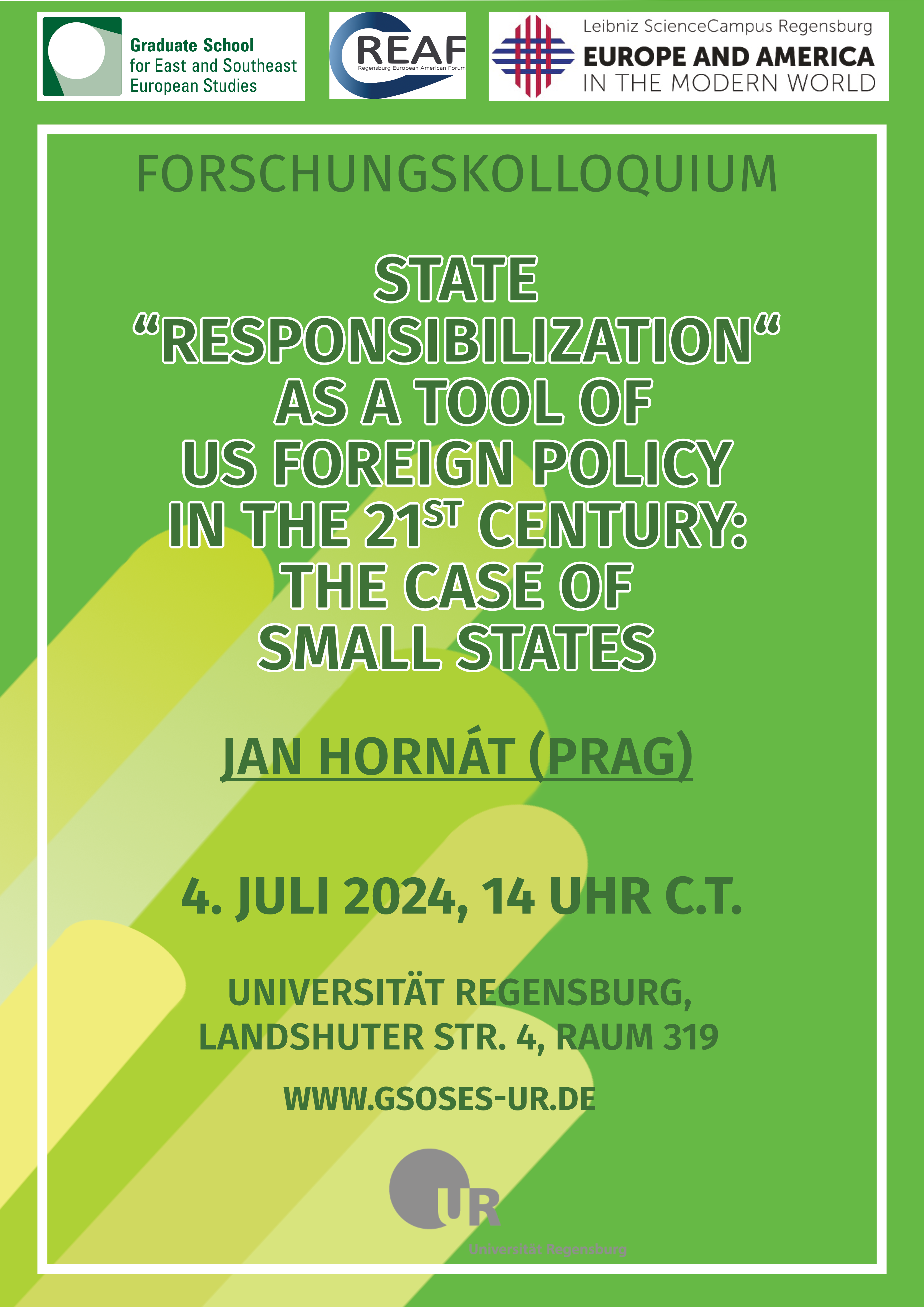Research Colloquium | Jan Hornát (Prague) | State "Responsibilization" as a Tool of US Foreign Policy in the 21st Century: The Case of Small States
When? Thursday, 4 July 2024, 14:15
Where? Room 319, Altes Finanzamt, Landshuter Str. 4
ScienceCampus visiting fellow Jan Hornát of the Charles University, Prague, will be giving a talk in the ScienceCampus and Graduate School Research Colloquium. During his time in Regensburg, he is a fellow of the ScienceCampus and based at our partners at REAF - the Regensburg European American Forum.
Abstract: The 21st century is marked by the “ubiquity of responsibility talk” in global politics. However, these demands for “responsible” behavior do not cater just to moral aspirations – they are the subtle techniques of power within the liberal international order (LIO), falling squarely in line with the Foucauldian concept of responsibilization. Why do states assume responsibilities? Who formulates these responsibilities and do states accept responsibilities voluntarily or are they coerced into acceptance? How important is the ability to define "responsible behavior" in international affairs? In this sense, the talk will explore the role of the United States in coordinating and inducing responsibilization as a technique of power that is conducive to the reproduction of the LIO and the sustainability of Washington’s hegemonic status.
Bio: Jan Hornát works as a researcher at the Center for EU-Asia Relations. He studied international territorial studies at the Faculty of Social Sciences (Ph.D.) and American studies (PhDr.) at Charles University. In addition, he works as Head of Department of North American Studies at the Institute of International Studies, Faculty of Social Sciences, Charles University. In the past he was Head of Unit at the Department of European Programs at the Ministry of Justice (2014-2015). His professional interests include US domestic and foreign policy, US relations with the Asia-Pacific region, American political thinking, the transition to democracy, democratization theory, development cooperation, territorial disputes (focusing on the South China Sea, East China Sea and the Arctic) and geopolitics of the Indian Ocean region.

